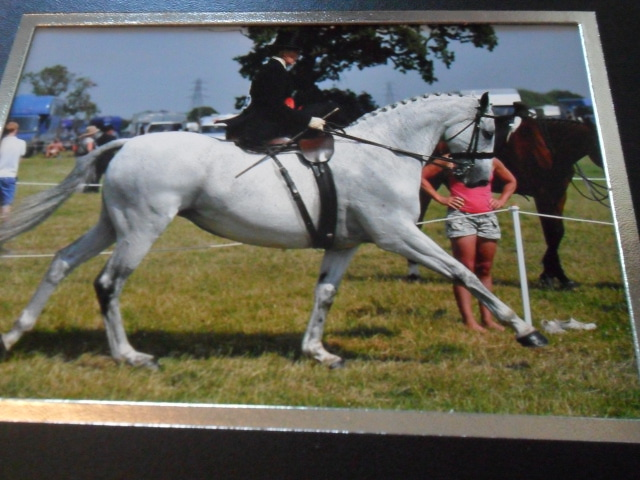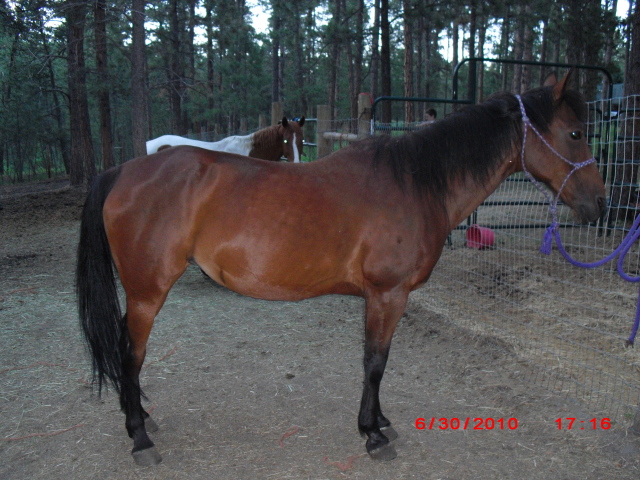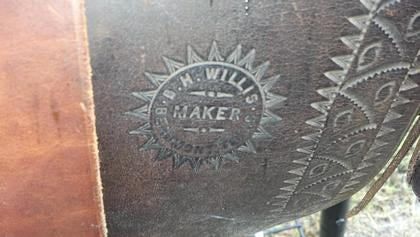QuestionI have a 2 year old saddlebred colt that we had hauled
about 800 miles yesterday and when he got off the trailer
he was "off." Today he has a head tilt and is still just
not himself. We had seen some gait issues, mostly his
timing wasn't right, in the past month or so of
training...any ideas what could be going on? He is rather
sensitive, tends to lose weight easily. could this just be
from 13 hours on the van? Or should we be looking at EPM or
Vestibular diseases?
AnswerMalissa:
Please understand that I can only give some guidelines for this as I cannot examine the horse over the internet.He should not get a head tilt just from a van ride unless he had previous vestibular disease. By the way, a head tilt IS evidence of vestibular disease but the cause of vestibular disease can be a number of things including EPM, trauma to the head and infection of the inner and middle ear as the 3 top most likely causes. Some horses that have recovered from previous causes of vestibular disease will show signs again when they are stressed or exercised. Also, a final consideration is a condition know as temporohyoid osteopathy. this might fit this case well because something in this condition causes a fusion of the joint between the stylohyoid bone and the petrous temporal bone at the base of the skull. I beleive this could be a long standing infection in the inner and middle ear, but thats speculative right now. Anyway, when the horse vocalizes emphatically as they often do when they are on the trailer, the stylohyoid bone that is supposed to move with the "voice box apparatus" cannot since the joint is fused. This causes the forces to be trasmitted to the petrous temporal bone where it causes a fracture there. This is where the middle and inner ear cavities are and that is also where the nerves that supply the ear and the face exit the skull, so there is often very acute signs of vestibular dysfunction. At a minimum, your horse needs a good neurological exam to help rule out another disease that may affect the central nervous system (such as EPM and others), then he needs probably xrays of the skull and an endoscopic exam of the guttural pouch on the affected side in which you can actually see the stylohyoid bone as it articulates with the base of the skull at the petrous temporal bone. I hope this helps some. Let me know if I can assist you any further. good luck.

 Sores on horses
QuestionQUESTION: this is kinda gross so i apologize to
Sores on horses
QuestionQUESTION: this is kinda gross so i apologize to
 at a loss!!
Question
recent competition pri
Good day
I am a
at a loss!!
Question
recent competition pri
Good day
I am a
 Mystery Mare
Question
Bay Mare
Hi there, I was curious if you could
Mystery Mare
Question
Bay Mare
Hi there, I was curious if you could
 pony mares - Rick Gore Horsemanship
Question
Millie and Angel Millie and Angel
pony mares - Rick Gore Horsemanship
Question
Millie and Angel Millie and Angel
 B.H. Willis Maker saddle
Question
Saddle name Top view saddle
I am
B.H. Willis Maker saddle
Question
Saddle name Top view saddle
I am